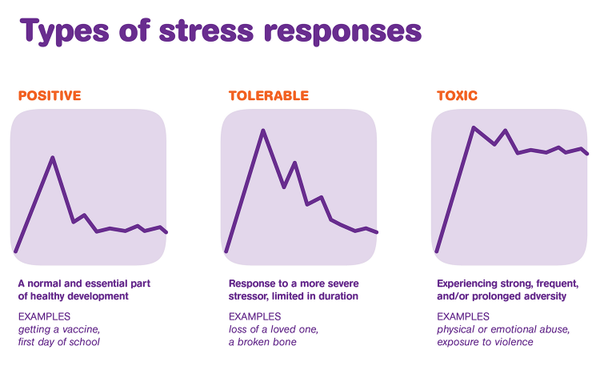The Stress Response: How your body reacts in the face of danger
- 25% of young Americans, women, and parents experience high levels of stress.
- 50% of Americans believe they have stress 33% higher than healthy levels.
- 64% of Americans say major stress comes from financial uncertainty.

It's likely you fall into at least one of these categories, or have at some point. If not, that doesn't exclude you from feeling its effects. Stress is a part of our daily lives. For good and bad, but what happens to our body when we experience stress?
Stress is a combination of reactions that happen instantaneously, often referred to as "fight-or-flight". The response is an evolved survival mechanism, one that kept our ancestors alive and allowed us to become what we are today. Our amygdala gave us the resources and reactions we needed to avoid lions and fight off would-be attackers. Unfortunately the rules are not clear cut, and the body can over or under react in almost any situation.
In any new situation the eyes and ears send information to the brain, processed through the amygdala, which then interprets the sights and sounds. If the amygdala sense danger, real or perceived, it sends a response signal to your hypothalamus.
There, response is immediate, giving your body the energy and abilities needed to survive. Adrenaline spikes, your heart rate increases, pushing blood into vital organs and muscles, senses sharpen, lung capacity increases, and blood sugar is released from stores to continue working as fuel.
All of this happens before the brain can comprehend the intensity of the situation, what should be it's best response, and when to stop. This is completely by design. After all, thinking takes time and in the face of immediate danger time is of the essence.
But, I know we've all jumped at a loud bang, screamed at friends who scared us, and had some erratic responses to other peoples driving. Not completely our fault, a lot of the time it's an involuntary reaction. It's part of the reason it can all be so frustrating.
What's really bad though, is when those low level stressors are constant. They keep our stress mode active and prolonged exposure can be just as bad as chronic stress. That's increased blood pressure, weight gain, and chemical imbalances in the brain that lead to anxiety, depression, and addiction. Ironically, and perhaps worst of all, the symptoms of stress are really stressful.

Don't panic.
You're probably not experiencing these symptoms or chronic stress of either sort, but it's important to keep an eye on what impacts your life. Just because something seems like a minor annoyance doesn't mean it can't wear you down.
So, be mindful. Take a break when you need it. Your health is important.
Looking for other science/psychology posts? Check out my other psycho blog posts.
Self-Control and Happiness
Sleep is for the weak
The Marshmallow Test
And feel free to follow for future psychology topics!
It is stressful trying to make money and live day to day. I upvoted you. Please consider upvoting my post. https://steemit.com/steemit/@brianphobos/an-olympian-needs-our-help-steemit-please-read-this-if-you-have-ever-been-passionate-about-something
Hi! This post has a Flesch-Kincaid grade level of 8.3 and reading ease of 61%. This puts the writing level on par with Leo Tolstoy and David Foster Wallace.
Nice @sharper333
Shot you an Upvote :)